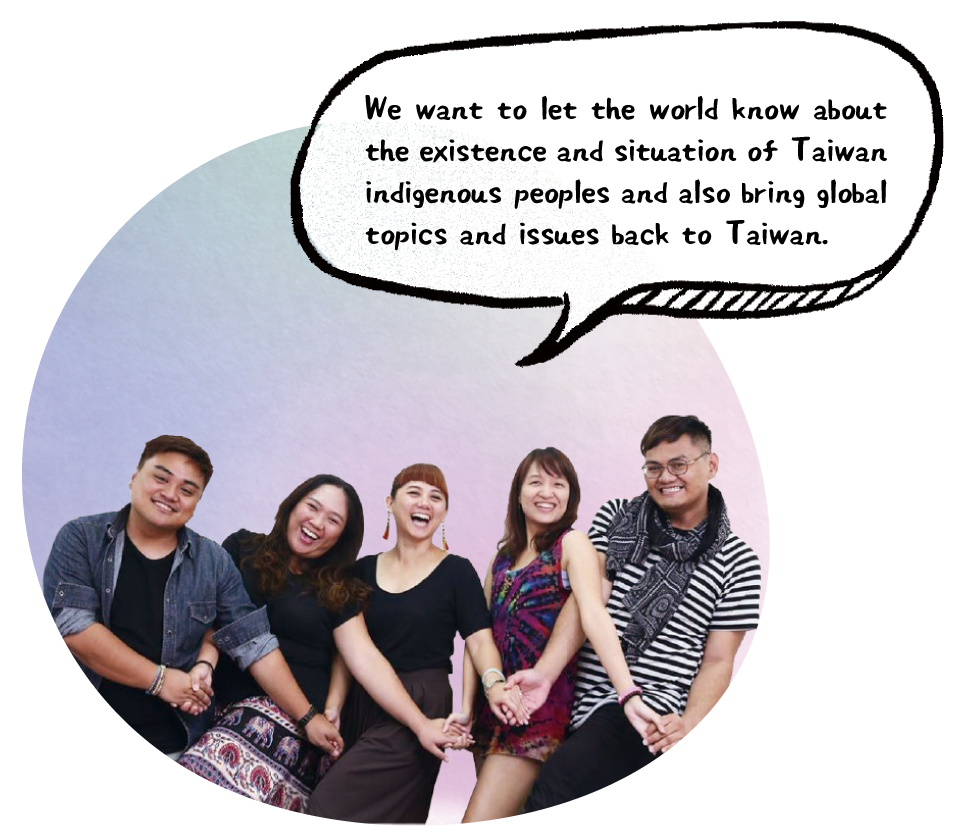
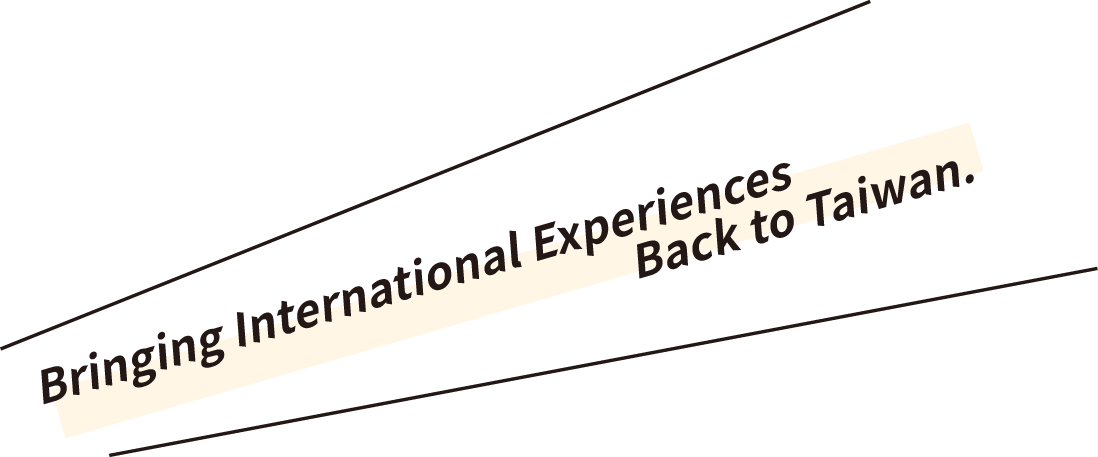
A small group with a lot of power! This new-generation indigenous youth organization with less than twenty people is dedicated to learning about international issues and actively participating in UN organizations to speak out for indigenous peoples in Taiwan. They also bring what they have learned from other countries back to their communities to expand local mindsets.
It all started in 2006. Tuhi Martukaw, who was still studying diplomacy in university, traveled with Taiwan Foundation for Democracy and took part in the UNPFII, a high-level advisory body to the UN Economic and Social Council, and its planetary meetings. She was very inspired by the indigenous representatives from around the world she met there and thus made this event something she wanted to participate in every year.
When she was studying in Europe, Tuhi began to seek out like-minded people who were also interested in indigenous issues. Most of their first meetings happened in airports: some flew in all the way from Taiwan, and some were overseas students. Most of them had never met before. However, since they did not know each other beforehand, there were often disagreements in opinions and ideas. Considering the fact that this group of people is going to represent the image of Taiwan indigenous peoples to the world when they participate in international events, Tuhi started to think about finding other partners which shared common ideas and beliefs.
Let's Join Hands and Take Part in the International Society
Tuhi returned to Taiwan after completing her studies. She later met a group of like-minded indigenous young people at various social movements and training lectures that she gave. The group tested out the waters with study groups. Many meetings and interactions later, they gradually agreed that they could form a team. Thus LIMA Taiwan Indigenous Youth Working Group (hereafter referred to as “LIMA”) was officially established in 2013.
In the Austronesian language, “lima” means the number five, it also means “hand”. Eleng, who is one of the members, stressed that the name of the group symbolizes everything the indigenous people have are all made by hand. It also means that they want to link hands with their community members and connect with the international society.
LIMA is a diverse group with members from different backgrounds, such as law, diplomacy, building and planning, and languages. The eighteen members come from the Paiwan, Pinuyumayan, Rukai, Bunun, and Atayal peoples, respectively. When LIMA was first established, most of them were still in university or graduate school. Some of them have lived in the city for a long time, and some grew up in their villages and moved north for further education.
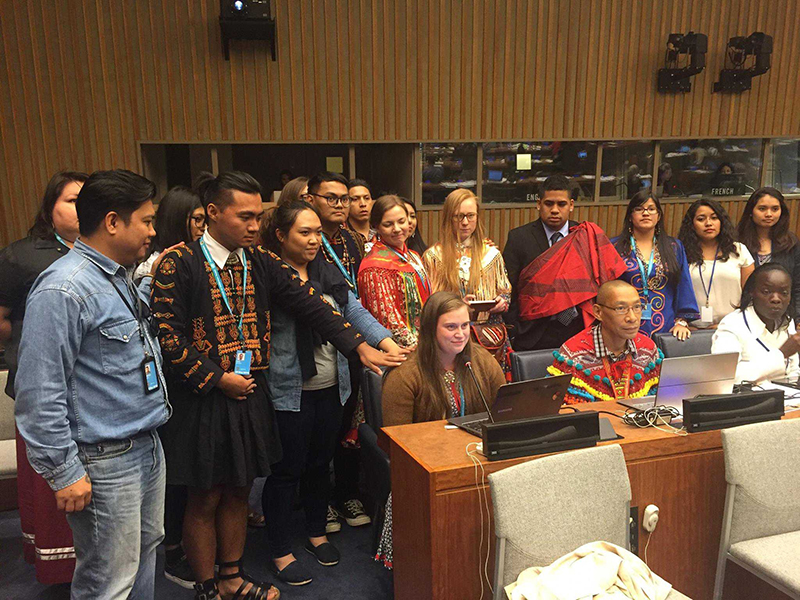
LIMA actively participates in international conferences where they share the situation of Taiwan indigenous peoples with their global counterparts.
Telling the World Loudly
“I am a Taiwan Indigenous Person!”
Besides continuously following and being involved in international indigenous affairs, LIMA is also dedicated to training local youths. From 2013 to 2019, a couple of LIMA members attended the annual major event - UNPFII. Before they left Taiwan, LIMA hosted several pre-departure study groups to empower and train the members. Using the work reports of certain issues discussed in UNPFII as an introduction, members were asked to think about the correlations between Taiwan and international indigenous issues. Response and presentation skills were also part of the training before the trip to the UN. In the past few years, the group members have accumulated a deep understanding of good governance, climate change, transitional justice, and sustainable development.
LIMA does not have a class distinction in core cadres and general members. Everyone can speak their mind during the discussion or decision-making process, and conclusions are reached by consensus and not majority decision. “If there are different opinions, we continue to discuss the issue and let everyone express themselves clearly.” Said Tuhi. Thus LIMA often extends their discussion time until everyone reaches a consensus and generates a conclusion.
The two-week-long UNPFII gathers indigenous representatives from all over the globe. On average there are two thousand participants per year. Usually, before the official forum starts, task teams representing the global indigenous peoples, indigenous women, and indigenous youth do pre-forum prep work. They collect and compile suggestions from all parties into a statement that will be issued at the official forum. LIMA’s suggestions are also included in the statements. During the regional Asia and Pacific task team meetings, some LIMA members serve as cadres and would interact with indigenous representatives from the two regions. Representatives from the Philippines and Indonesia have also extended visit invitations to LIMA members, strengthening the bonds between the parties.
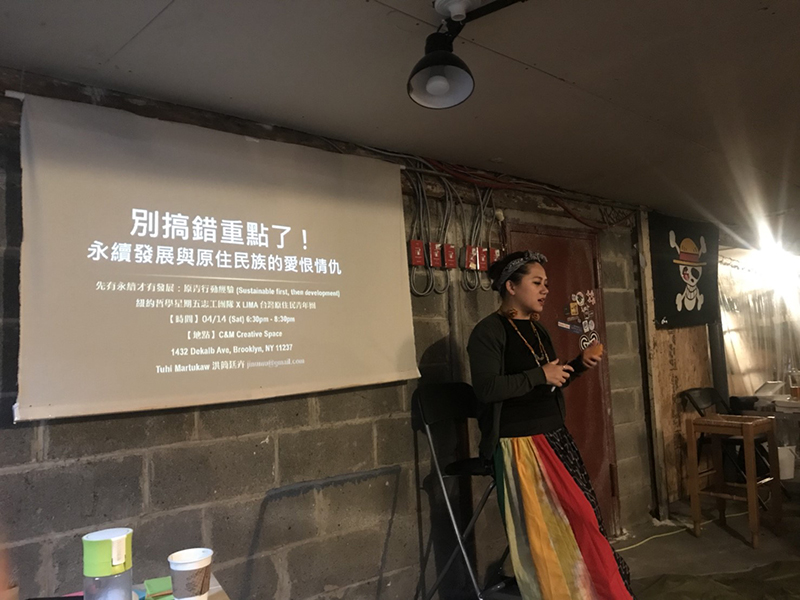
Although Faced with Oppression,
Our International Friends Are There to Help
When LIMA is participating in international affairs, the most common challenge they encounter is oppression from China. It is very difficult for Taiwan to take part in international organizations and events. Every year, LIMA members cannot register on the UNPFII website with Taiwan addresses and telephone numbers. If the email address ends with “.tw”, it will be rejected. Therefore, members can only register under other countries’ organizations. Fortunately, international indigenous groups that understand Taiwan’s situation are always happy to help out.
Once Eleng flew to Rome to attend a UNFAO meeting, yet she was not allowed to enter the venue. “Taiwan is not a member of the UN, so I couldn’t get in, even with an invitation.” Eleng sighed. Fortunately, they had long-term friends inside the venue and those participants helped her present LIMA’s suggestions on food crisis via con-call from a cafe outside.
LIMA actively interacts with the international society because they want to not only let the world hear the voice of Taiwan, but also remind the world of the existence of Taiwan indigenous peoples. Tuhi expressed that “a lot of countries don’t even know there are indigenous peoples in Taiwan, let alone our situation. We want to tell everyone about us and also bring international topics back to Taiwan.” After returning to Taiwan from the events, LIMA hosts workshops in villages or universities to share their experiences at international conferences. This gives youths from different generations and peoples a chance to know more about international indigenous peoples' affairs and inspire a broader mindset among them.
“You cannot just look at things from your perspective. You must expand the scope of your vision.” For Eleng, LIMA is like the messenger that brings international experiences and ideas back to Taiwan. Now when someone runs into related issues, they would come and ask LIMA about relevant cases around the world. Tuhi observed that initially many village youths did not dare to express themselves openly, but after a couple of years of interacting with LIMA, discussions became more frequent and livelier during workshops and events. These gradual changes proved that LIMA’s hard work has not been in vain.
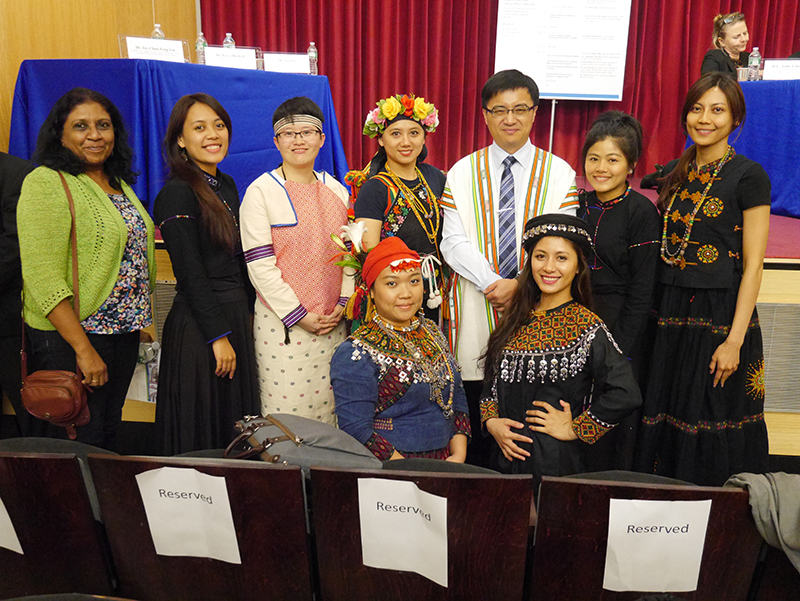
The Flame of Our Mission will Never Go Out
As members slowly graduate from school and enter a new phase of life, LIMA is also adjusting their operation methods and members are now bringing their experiences and capabilities in indigenous affairs into their respective careers. For example, Eleng works at the Indigenous Center at the Legal Aid Foundation Hualien Branch where she helps community members deal with legal matters related to conflicts between indigenous traditional customs and the nation’s legal system. Tuhi is currently working for her Ph.D. and is also involved in village research projects. Other members are at the front lines teaching or working at Taiwan Indigenous Culture Park. Some are lecturers at the Council of Indigenous Peoples' International Affairs Training Camp where they share their experiences with the participants.
Throughout these years, members take part in the events during their free time, and sometimes they simply do not have the extra time after they have taken care of their work or studies. Eleng admitted that they wish they had steady funding to support the operation of LIMA. Then the group can solely focus on social advocacy.
Due to the COVID-19 pandemic, UNPFII canceled physical forums for two consecutive years. Tuhi revealed that recently LIMA received a collaboration project inquiry from the European Economic and Trade Office in Taiwan and that may be LIMA’s next project. “Let LIMA keep in contact with the world and we can do more for the local people.” There is no end to LIMA’s mission, for it is a growing process that will keep on going.
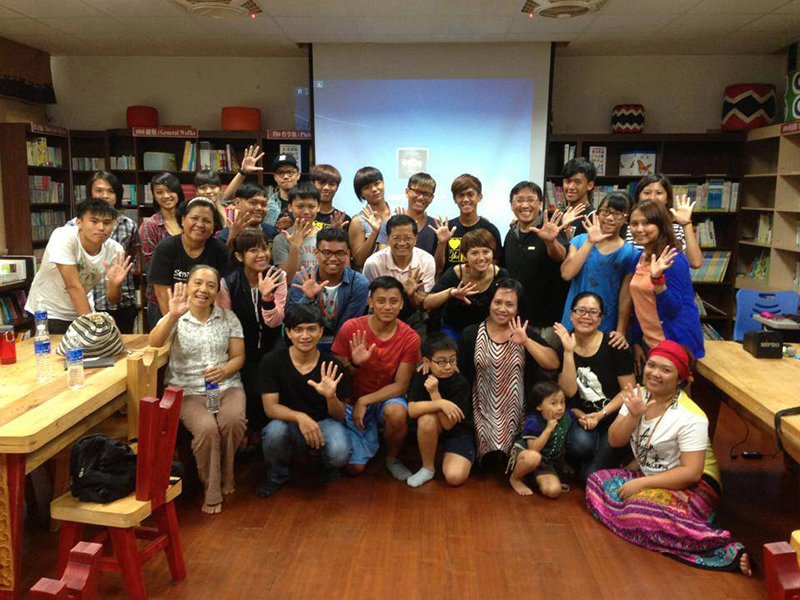
The name “LIMA” means the number “five” and also symbolizes that the group wants to take the hands of their community members and connect with the world.




